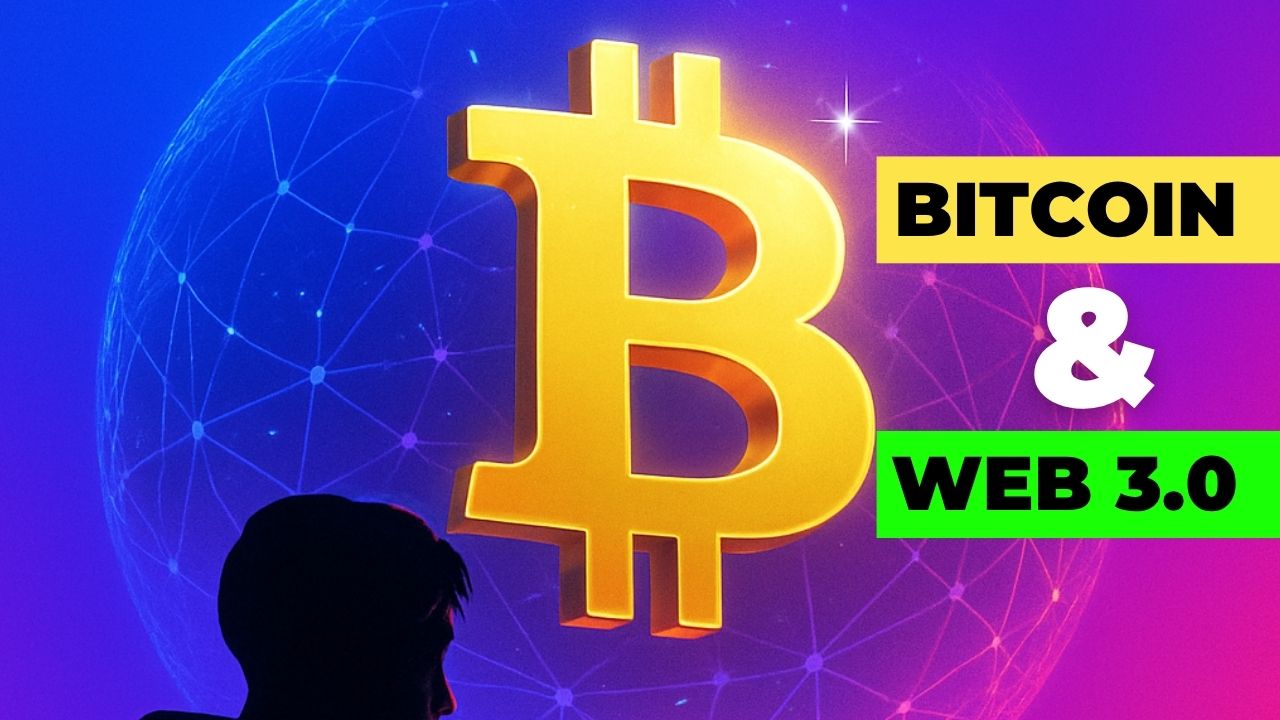We have grown up in a digital world, but the internet is changing fast.
A lot of the headlines about Bitcoin and Web 3.0 can sound like hype or buzzwords. But beneath all that noise, there’s a real shift happening – one that could impact how we use the internet, how we create value, and who owns what online.
Table of Contents
The Internet’s Evolution: From Static Pages to Social Platforms
Back in the early days, the internet was mostly read-only. This was called Web 1.0 — a place where people could read articles and maybe send emails, but not much more.
Then came Web 2.0, which shaped the internet most of us are familiar with. Social media platforms like Facebook, YouTube, and Instagram allowed everyone to create and share content. That gave rise to the creator economy — but it also created a new kind of problem.
Big tech companies began profiting from the content we post and the data we generate. While we got access to their platforms for “free,” they made billions by collecting and monetizing our activity. In short, we created the value, but they owned the platform — and kept the profits.
Bitcoin: A New Way to Think About Trust
In 2008, someone under the name Satoshi Nakamoto introduced Bitcoin. It was designed to be a form of digital money that didn’t require a bank or government to verify transactions.
Bitcoin’s innovation was its blockchain — a public, unchangeable digital ledger that anyone could verify. No single person or organization controls it. It’s like a shared online document where updates only happen if the majority agrees.
The real breakthrough wasn’t just digital money — it was the idea that trust could be built into code, not handed over to big institutions.
Since then, Bitcoin has operated non-stop — no CEO, no shutdowns, no holidays. That kind of reliability is rare in the digital world.
Also Read – The Very First Post You Should Read to Learn Cryptocurrency
Web 3.0 – Redefining Online Ownership
Web 3.0 builds on that idea of decentralized trust. The goal is to shift power away from corporations and give more control back to users.
Instead of platforms owned by private companies, Web 3.0 imagines applications owned and operated by their users. Imagine a version of Instagram where the users vote on major changes, share in advertising profits, and have a say in how the platform runs.
Web 3.0 also rethinks how your data is used. Instead of handing it over to companies, you’d choose what to share and possibly even earn money for it.
Right now, many Web 3.0 apps are still in the early stages. They can feel complicated or slow, and not all of them solve real problems. But the direction they’re headed is worth noticing — especially if you care about who controls your digital world.
What’s Happening in 2025?
Today, Bitcoin is more widely accepted. You can buy it on major investment platforms, and some companies even accept it as payment. But it’s still mostly used as a store of value, like digital gold.
Meanwhile, Ethereum — another blockchain platform — is where most Web 3.0 projects are being built. Ethereum supports smart contracts, which allow apps to run automatically without a company controlling them.
You might remember the NFT boom from a few years ago. While the hype around digital art has faded, NFTs are now being used in more practical ways — like digital concert tickets, in-game items, and proof of ownership for digital content.
A New Path for Creators
Web 3.0 offers a different model for artists, writers, and creators. Instead of posting on platforms that take a large cut of your earnings, Web 3.0 tools allow fans to support you directly.
For example:
- Mirror lets writers publish articles as NFTs, which readers can purchase to show support.
- Sound.xyz helps musicians release songs where fans own a piece of the track.
These platforms aren’t as big as YouTube or Spotify yet, but they reflect a shift toward fairer and more transparent models for creative work.
On traditional platforms, you rarely know how much your content is worth or how it’s being promoted. Web 3.0 platforms aim to change that by giving creators more visibility and control.
Real Challenges You Should Know About
Let’s not ignore the difficulties. Web 3.0 is promising, but it’s far from perfect.
- Complicated Tools: Using these platforms often requires technical knowledge. You may need to manage crypto wallets, understand transaction fees, and protect your private keys.
- Environmental Impact: Bitcoin uses a lot of energy. Some blockchains are becoming more eco-friendly, but energy consumption is still a concern.
- Scams and Speculation: The crypto world includes plenty of risky or dishonest projects. Not everything in this space is trustworthy.
- Slow Performance: Many blockchains can’t handle large numbers of users at once, which leads to delays and high costs.
- Legal Uncertainty: Governments are still trying to figure out how to regulate cryptocurrencies and blockchain apps. This creates risks for developers and investors alike.
Why It Matters for Your Future?
Whether or not Web 3.0 succeeds in its current form, the questions it raises are important:
- Who owns your data?
- Who profits from your creativity?
- Who gets to decide how the internet works?
These questions will shape how we use digital tools in the future — in work, in education, and in life.
You don’t need to dive into crypto trading or become a blockchain expert. But staying informed about these changes can help you make smarter decisions down the line — just like understanding how websites worked helped people build careers in the 2000s.
What You Can Do Now?
If you’re curious:
- Try exploring a few Web 3.0 platforms. You don’t need to spend money — just observe how they work.
- Read articles or watch videos from credible sources that explain blockchain and Web 3.0 in simple terms.
- Talk to people who are working in tech or digital media and ask what they think about these changes.
Stay open-minded, but also skeptical. Not everything that sounds new is useful — and not every technology needs to exist.
But the broader conversation about who owns the internet, how we build trust, and how we support creators is one worth paying attention to.
Final Thoughts
The internet is evolving again — and this time, the focus is on ownership and control. Whether Web 3.0 becomes the new normal or not, understanding its potential helps you become a more informed digital citizen.
So as you head into your future, keep asking smart questions. Because the internet of tomorrow isn’t just about technology. It’s about people — and the values we build into the systems we use every day.
This article is for informational purposes only and should not be considered financial advice. Investing in stocks, cryptocurrencies, or other assets involves risks, including the potential loss of principal. Always conduct your own research or consult a qualified financial advisor before making investment decisions. The author and publisher are not responsible for any financial losses incurred from actions based on this article. While efforts have been made to ensure accuracy, economic data and market conditions can change rapidly. The author and publisher do not guarantee the completeness or accuracy of the information and are not liable for any errors or omissions. Always verify data with primary sources before making decisions.

